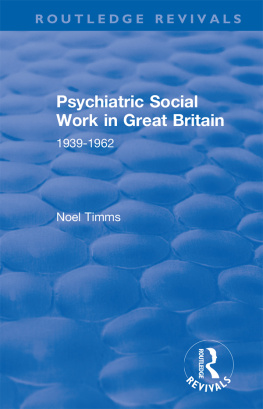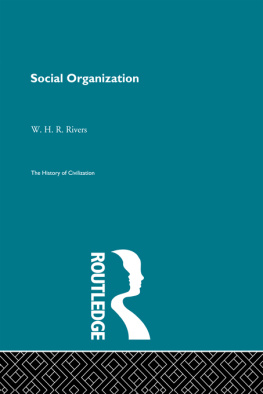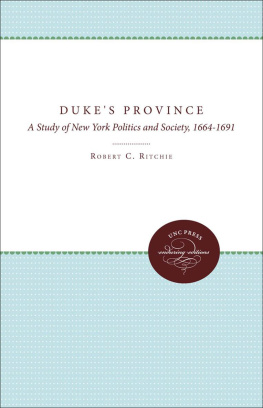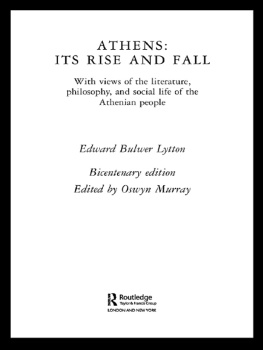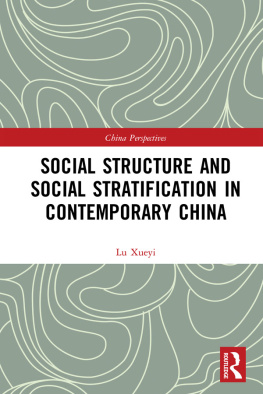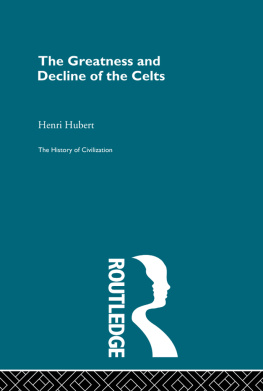AFRICAN ETHNOGRAPHIC STUDIES
OF THE 20TH CENTURY
Volume 6
THE MUGWE
THE MUGWE
A Failing Prophet
B. BERNARDI
First published in 1959 by Oxford University Press for the International African Institute.
This edition first published in 2018
by Routledge
2 Park Square, Milton Park, Abingdon, Oxon OX14 4RN
and by Routledge
711 Third Avenue, New York, NY 10017
Routledge is an imprint of the Taylor & Francis Group, an informa business
1959 International African Institute
All rights reserved. No part of this book may be reprinted or reproduced or utilised in any form or by any electronic, mechanical, or other means, now known or hereafter invented, including photocopying and recording, or in any information storage or retrieval system, without permission in writing from the publishers.
Trademark notice: Product or corporate names may be trademarks or registered trademarks, and are used only for identification and explanation without intent to infringe.
British Library Cataloguing in Publication Data
A catalogue record for this book is available from the British Library
ISBN: 978-0-8153-8713-8 (Set)
ISBN: 978-0-429-48813-9 (Set) (ebk)
ISBN: 978-1-138-48918-9 (Volume 6) (hbk)
ISBN: 978-1-351-03834-8 (Volume 6) (ebk)
Publishers Note
The publisher has gone to great lengths to ensure the quality of this reprint but points out that some imperfections in the original copies may be apparent.
Disclaimer
The publisher has made every effort to trace copyright holders and would welcome correspondence from those they have been unable to trace.
M. Mugambi (left), the Mugwe of the Igembe, and Muruku, the retired Mugwe. See page 32.
THE MUGWE,
A FAILING PROPHET
A STUDY OF A RELIGIOUS AND PUBLIC
DIGNITARY OF THE MERU OF KENYA
BY
B. BERNARDI, I.M.G.
With a Foreword by D ARYLL F ORDE
Published, for the
INTERNATIONAL AFRICAN INSTITUTE
by the
OXFORD UNIVERSITY PRESS
LONDON NEW YORK TORONTO
1959
CONTENTS
Oxford University Press, Amen House, London E.C.4.
GLASGOW NEW YORK TORONTO MELBOURNE WELLINGTON BOMBAY CALCUTTA MADRAS KARACHI KUALA LUMPUR CAPE TOWN IBADAN NAIROBI ACCRA
International African Institute, 1959
PRINTED IN GREAT BRITAIN BY THE WHITE FRIARS PRESS LTD.
LONDON AND TONBRIDGE
Father Bernardi has, as he explains in his Introduction, undertaken a study of a ritual office which has been of great social significance among the Meru of the Central Province of Kenya. The role of the Mugwe among the Meru tribes had received little attention in the earlier literature and its character had been little appreciated, if not misunderstood. The Meru, seeking analogies in other societies, have likened the Mugwe to a king or to a bishop. As Father Bernardi shows, the character of this office cannot be adequately presented in such terms, for analysis of the type and range of authority embodied in the Mugwe requires close study of the indigenous social system of the Meru and of the moral and cultural values it sustained. On this basis he is able to make significant comparisons with ritual dignitaries of some other East African peoples, notably the Laibon among the Masai, and the Hayu or Abba Boku of the Boran Galla. That the functions of the Mugwe were so deeply rooted in the values of the traditional way of life also serves to explain their inevitable decline with the growth of new interests and the transformation of the social framework under changed political and economic conditions.
Father Bernardi has had a long experience among African peoples and he has pursued advanced studies in the University of Rome and the University of Cape Town, at both of which he was awarded a Doctorate. His earlier publications include The Social Structure of the Kraal among the Zezuru in Musami, Southern Rhodesia (1950), The Age-System of the Nilo-Hamitic Peoples (Africa, October 1952), and Le Religioni dei Primitivi (1953). Since 1953 he had been attached to the Catholic Mission at Nkubu in the Diocese of Meru. This afforded him the opportunity of visiting all the Meru sub-tribes, establishing close relations with many holders of the office of Mugwe. The International African Institute was happy to be able to make him a grant for field research that gave him the opportunity of pursuing more intensive studies among the Meru. This he did over a period of nine months in 1955 and a shorter period in 1956. The present volume is a product of that work and will, it is hoped, significantly advance the understanding of East African peoples and the study of their religious institutions.
The Institute is itself indebted to the Ford Foundation for a grant which has enabled it to provide for its current programme of field research and to publish studies resulting from it. Its thanks are also due to the Bishop of Meru and to Father Bernardis religious superiors of the Consolata Catholic Mission for releasing him from other duties while carrying out these researches.
D ARYLL F ORDE
Director,
International African Institute
London, October 1958
The present work is based on material recorded mostly during a tour of nine months field work among the Meru of Kenya, as a Research Fellow of the International African Institute, from April to December, 1955. Before that, thanks to the generous assistance of my religious superiors, I had been able to study the Meru at various times since 1953, while I was attached to the staff of the Catholic Mission, Nkubu, in the Diocese of Meru.
At first the scope of my work was limited to the study of the social structure of the Tharaka with special reference to their Mugwe. But I soon realized that in order to assess the significance and position of the Mugwe, my enquiry must be extended to the other Meru sub-tribes, who also acknowledge the authority of the Mugwe. In the past, the importance of the Mugwe among the Meru sub-tribes was certainly very great. It has now been declining owing to the many changes that have been brought about during the last decades. My research came slightly late to be able to record all the aspects of the Mugwe as an institution, though not too late, as I was fortunate enough to record oral traditions and statements by the elders, and also to contact personally the living Mugwe of most Meru sub-tribes.
I have always been struck by the vigour with which my informants maintained that the Mugwe was their leader and that they could recognize no other but the Mugwe. Chiefs are of a different order: they are there because of the Government, but the Mugwe is the Mugwe.
The Mugwe was frequently likened to the King: He is our King, he is like the Kabaka of Uganda. This, indeed, was the first description of the Mugwe that I heard. Later the simile became a familiar one as I recorded it again and again, especially among the Tharaka and the Chuka, and I discovered that the same description had been noted by other investigators, long before me.


